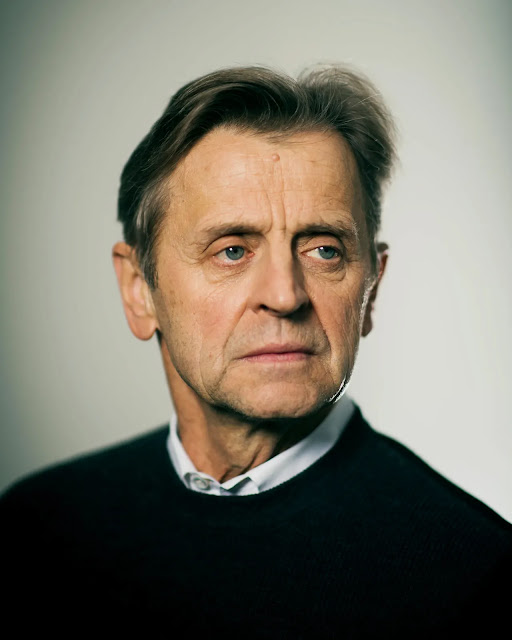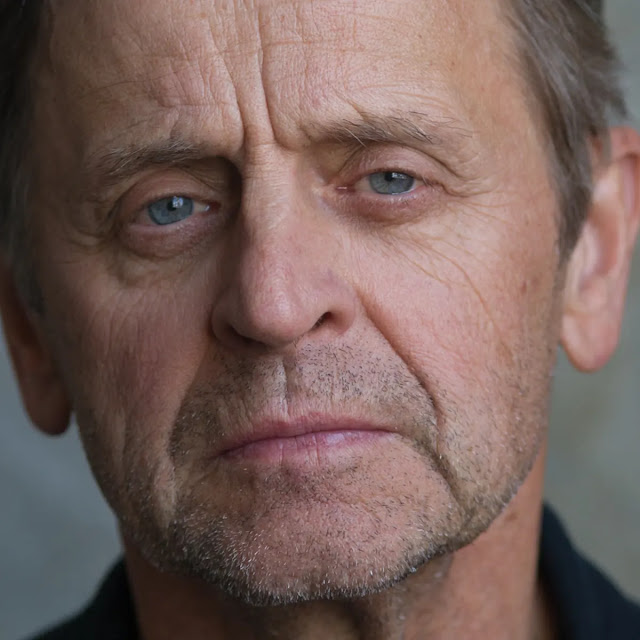Mikhail Baryshnikov
Mikhail Baryshnikov
Mikhail Nikolayevich Baryshnikov (Russian: Михаил Николаевич Барышников, IPA: [mʲɪxɐˈil bɐ'rɨʂnʲɪkəf]; Latvian: Mihails Barišņikovs; born January 28, 1948)[1] is a Soviet Latvian-born Russian-American dancer, choreographer, and actor.[2] He was the preeminent male classical dancer of the 1970s and 1980s. He subsequently became a noted dance director.
Born in Riga, Latvian SSR, Baryshnikov had a promising start in the Kirov Ballet in Leningrad before defecting to Canada in 1974 for more opportunities in Western dance. After dancing with American Ballet Theatre, he joined the New York City Ballet as a principal dancer for one season to learn George Balanchine's neoclassical Russian style of movement. He then returned to the American Ballet Theatre, where he later became artistic director. Baryshnikov has spearheaded many of his own artistic projects and has been associated in particular with promoting modern dance, premiering dozens of new works, including many of his own.[citation needed] His success as a dramatic actor on stage, cinema and television has helped him become probably the most widely recognized contemporary ballet dancer. Baryshnikov has never returned to Russia since his 1974 defection and has been a naturalized citizen of the United States since 1986.[4] In 2017, the Republic of Latvia granted Baryshnikov citizenship for extraordinary merits.
In 1977, he received a nomination for the Academy Award for Best Supporting Actor and a Golden Globe nomination for his portrayal of Yuri Kopeikine in the film The Turning Point. He starred in the movie White Nights with Gregory Hines, Helen Mirren, and Isabella Rossellini, and had a recurring role in the last season of the television series Sex and the City. Mikhail Baryshnikov was born in Riga, then Latvian SSR, Soviet Union, now Latvia.[5][6] His parents were Russians: Alexandra (a dressmaker; née Kiselyova) and Nikolay Baryshnikov (an engineer). According to Baryshnikov, his father was a strict, nationalist military man, and his mother introduced him to the theatre, opera and ballet.[4] She died by suicide when he was 12.
Baryshnikov began his ballet studies in Riga in 1960, at the age of 12. In 1964, he entered the Vaganova School, in what was then Leningrad (now St. Petersburg). Baryshnikov soon won the top prize in the junior division of the Varna International Ballet Competition. He joined the Mariinsky Ballet, then called the Kirov Ballet, in 1967, dancing the "Peasant" pas de deux in Giselle. Recognizing Baryshnikov's talent, in particular his stage presence and purity of technique, several Soviet choreographers, including Oleg Vinogradov, Konstantin Sergeyev, Igor Tchernichov, and Leonid Jakobson, choreographed ballets for him. Baryshnikov made signature roles of Jakobson's 1969 virtuosic Vestris along with an intensely emotional Albrecht in Giselle.[7] While he was still in the Soviet Union, New York Times critic Clive Barnes called him "the most perfect dancer I have ever seen."
On June 29, 1974, in Toronto while on tour with the Bolshoi, Baryshnikov defected, requesting political asylum in Canada. As recalled by John Fraser, a ballet critic from Toronto who helped Baryshnikov to escape, Fraser wrote down phone numbers of people on a small piece of paper and hid it under his wedding ring. At a banquet after one show he managed to distract the KGB officer who followed Baryshnikov as an interpreter and gave Baryshnikov the paper.[10] Soon he joined the National Ballet of Canada for a brief time in a guest role.[11][12] He also announced that he would not return to the USSR. He later said that Christina Berlin, an American friend, helped engineer his defection during his 1970 tour of London. His first televised performance after coming out of temporary seclusion in Canada was with the National Ballet of Canada in La Sylphide. He then went to the United States.[13] In December 1975, he and his dance partner Natalia Makarova featured prominently in an episode of the BBC television series Arena.







Comments
Post a Comment